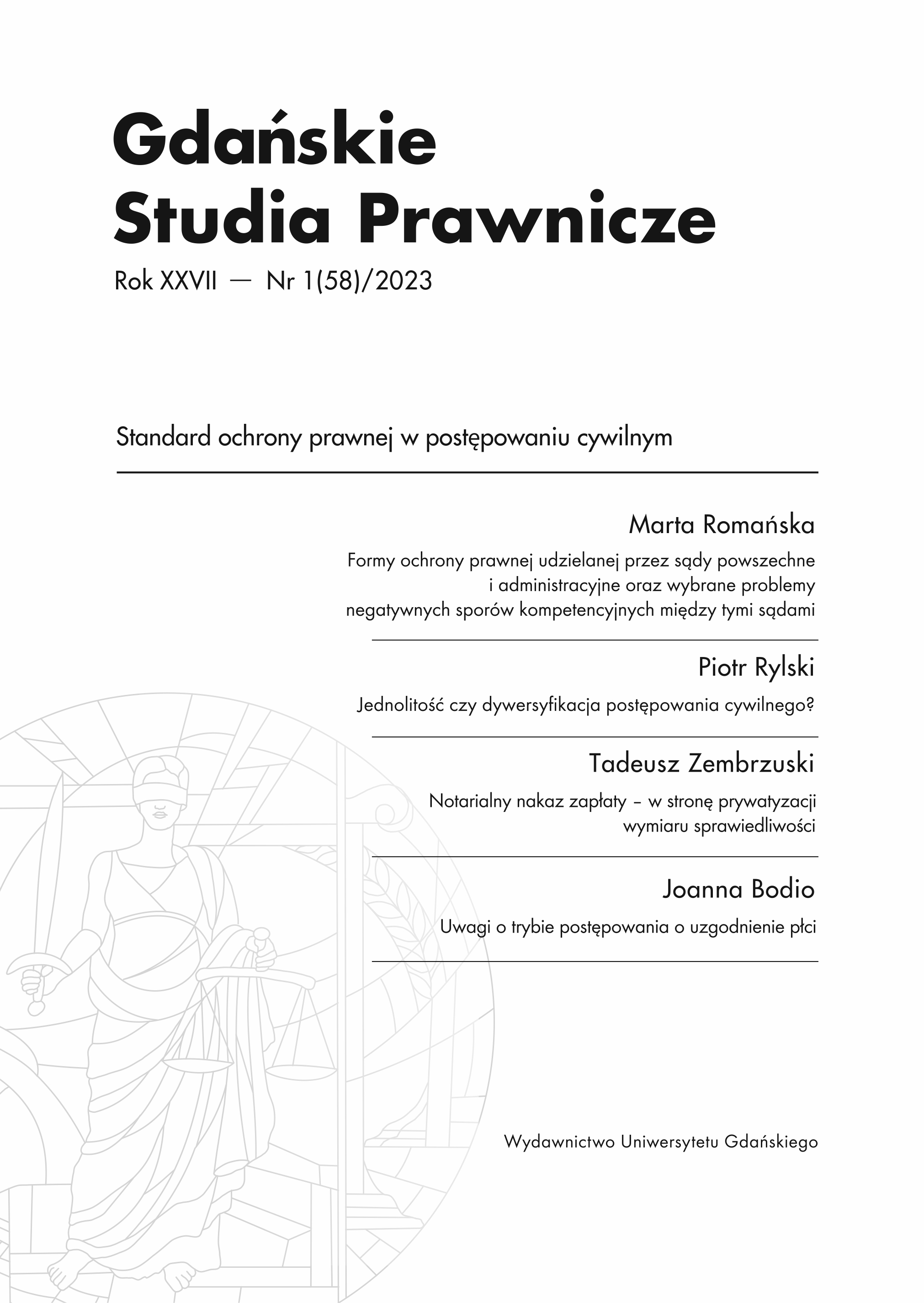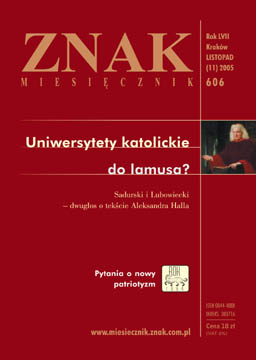

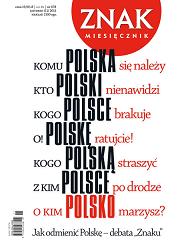
Keywords: uniwersytet; university; Cezary Kościelniak
More...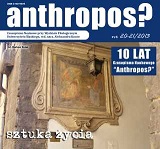
Keywords: University; education; values; knowledge; 'useful' knowledge; capitalism
The aim of the paper is to focused on discussion about the role of the university in today's world. A history of the university shows different understanding of knowledge through the centuries. A medieval university was describing the world; Renaissance university was taming a nature; Enlightenment university was shaping students' characters. Contemporary university should not only provide 'useful' knowledge but also shape students approach to the world.
More...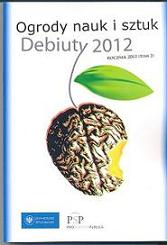
Keywords: Jacek Luminski; Silesian Dance Theatre; contemporary dance; history of dance in Poland - 20th century; dance education
The last decade of the 20th century marked a turning-point in the development of Polish contemporary dance. In 1991, Jacek Luminski established the Silesian Dance Theatre in Bytom. The theatre is said to have been the avant-garde of all activities around contemporary dance in Poland. It was J. Luminski and his theatre that set new trends in contemporary dance of the early 1990s, at the same time having fulfi lled educational purposes for the last twenty years. The aim of this article is to present the artistic and educational activity of the Silesian Dance Theatre of the last twenty years. It first presents a choreographic portrait of J. Luminski, founder and choreographer of the Silesian Dance Theatre, the creator of the Polish contemporary dance technique. Then, this paper analyses Luminski’s dance style and reviews the Silesian Dance The- atre’s choreographic achievements. The final part of the article discusses a wide spectrum of educational activities undertaken in the fi eld of contemporary professional dance by the Silesian Dance Theatre, and the phenom- enon of theatre on the Polish stage.
More...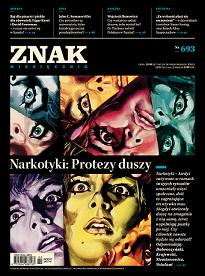
Keywords: uniwersytet; uniwersity; religia; religion; John C. Sommerville
More...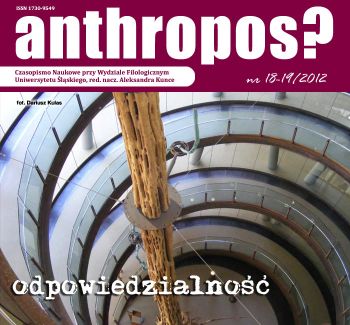
Keywords: university; role of the university; responsibility for university
The paper is divided into four parts which describe: 1) academic staff, 2) system of higher education, 3) students, 4) study programmes. It shows that in many cases conservatism and particularism are those that create university's environment. The following problems are shown: 1) University's work, although hard, is ineffective, no innovative. The number of administrative matters to be done by academic staff is raising. Personal relationships rather than knowledge have an impact on the academic career of an individual. Decisions are made in relation "we" - "others". 2) A number of university employees does not meet requirements. There are too many academic teachers who provide non effective teaching programmes. 3) To improve university education the reform of the primary and secondary school education is needed. Very few secondary-school graduates are outstanding, the majority has insufficient knowledge. 4) System of higher education should have significant financial support from the government.
More...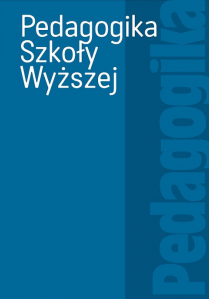
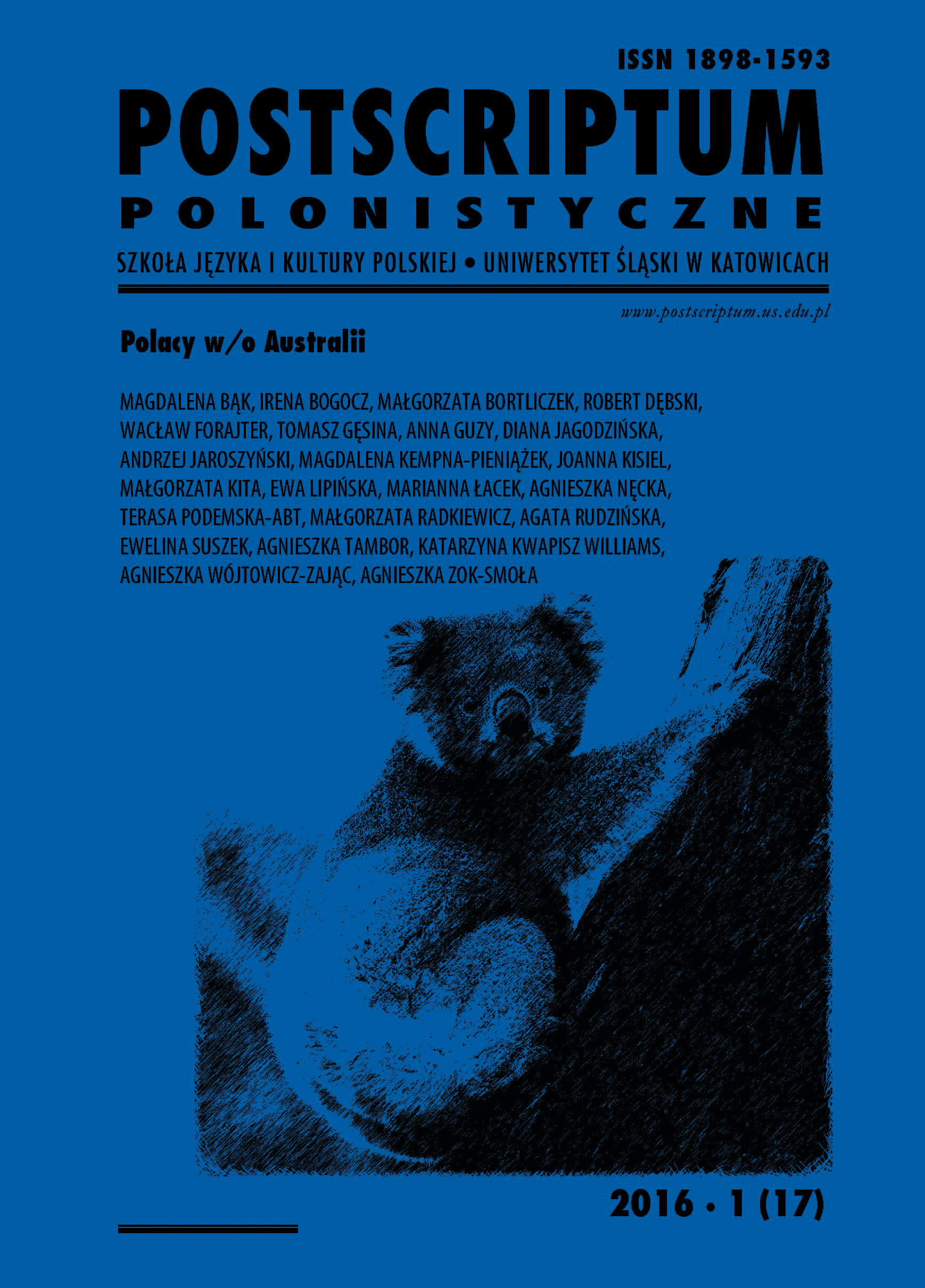
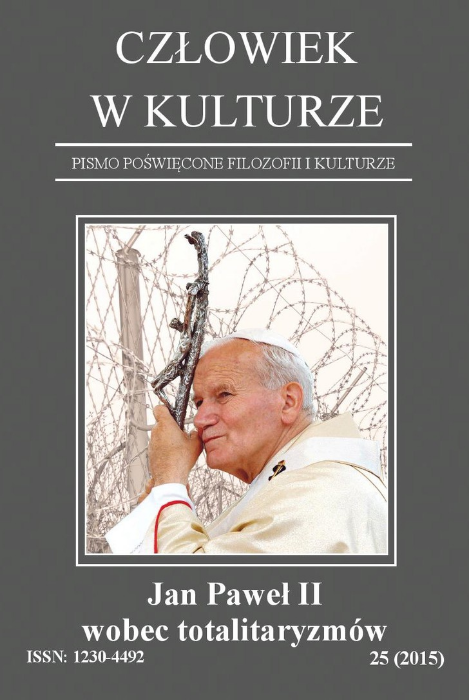
Keywords: John Paul II; university; philosophy; civilisation; totalitarian system; mythology; religion; ideology; science
Totalitarian system roots deeper than the human flaws, which manifests itself in the desire to own or dominate. At the foundation of any totalitarian system there is some image of a human being, which makes it possible or impossible to take possession of her or him. The above mentioned image may be derived from mythology, religion, ideology or science. It emerges not merely in military circles, among those longing for combat, nor among the profit-craving bankers, since it may also emerge at universities, among scholars who lacking awareness in terms of methodology and being ignorant of limitations to every domain of science attempt to reduce the concepts of a human being to the level of impersonal being. As a consequence, they facilitate it for the totalitarian system to successfully promote the anti-human civilisation all over the world. Further to the above, the considerations on totalitarian system also have to take into account science and university circles. That idea was also presented in the numerous speeches of John Paul II, who addressing the scientific circles warned them against totalitarian system which may take possession of university circles and scholars.
More...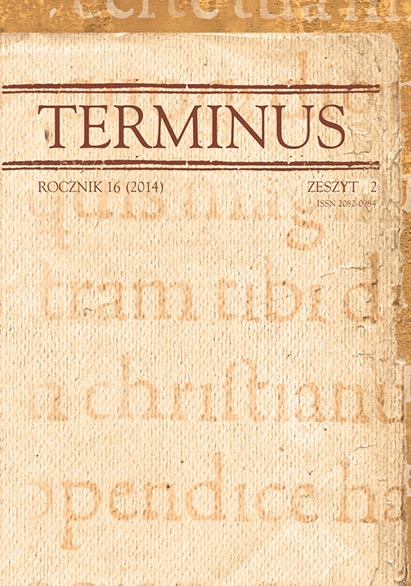
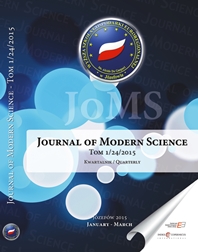
Keywords: conference report; philology;
More...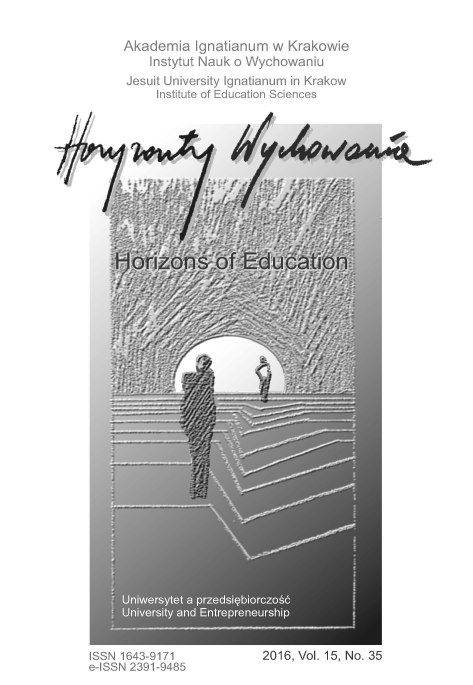
Keywords: uniwersytet; przedsiębiorczość;uniwersytet przedsiębiorczy;
CEL NAUKOWY: Celem artykułu jest dokonanie identyfikacji możliwych postaw i działań uczelni, które odzwierciedlałyby ich reorientację w kierunku idei uniwersytetu przedsiębiorczego.PROBLEM I METODY BADAWCZE: W artykule konfrontujemy założenia uniwersytetu przedsiębiorczego z mocno ugruntowanymi koncepcjami konserwatywnymi. Główny problem to poszukiwanie odpowiedzi na pytanie: w jakim stopniu i w jakich obszarach problemowych idea uniwersytetu przedsiębiorczego może wyznaczyć nowe kierunki rozwoju polskich uczelni? Fundamentem teoretycznym są wykonane studia literaturowe, które objęły prace krajowe i zagraniczne, a część empiryczna artykułu bazuje na przeprowadzonych badaniach empirycznych przedsiębiorczości polskich uczelni oraz wieloletniej obserwacji uczestniczącej środowiska akademickiego w Polsce.PROCES WYWODU: Pokazano powstanie i założenia koncepcji uniwersytetu przedsiębiorczego pozostającej w opozycji do idei klasycznej (humboldtowskiej), następnie zaprezentowano własną propozycję atrybutów uniwersytetu, które pozwoliłyby określić go mianem „przedsiębiorczego”, dalej – na podstawie badań empirycznych – sformułowano skrótową ocenę polskich uczelni na tle modelu uniwersytetu przedsiębiorczego, aby w finale dokonać syntetycznego porównania cech uniwersytetu tradycyjnego i uniwersytetu przedsiębiorczego.WYNIKI ANALIZY NAUKOWEJ: Wynikiem badań jest opracowanie atrybutów przedsiębiorczości uniwersytetu, a następnie zestawienie cech przypisywanych koncepcjom uniwersytetu tradycyjnego oraz uniwersytetu przedsiębiorczego. W konkluzji stwierdzono, iż współczesne uniwersytety będą tworzyć modele mieszane, łączące tradycyjne role i wartości z cechami uniwersytetu przedsiębiorczego.WNIOSKI, INNOWACJE, REKOMENDACJE: Wnioski wskazują praktyczne warunki reorientacji polskich uczelni w kierunku modelu uniwersytetu przedsiębiorczego, sugerują obszary, w których idea uniwersytetu przedsiębiorczego może wyznaczyć nowe kierunki rozwoju polskich uczelni.
More...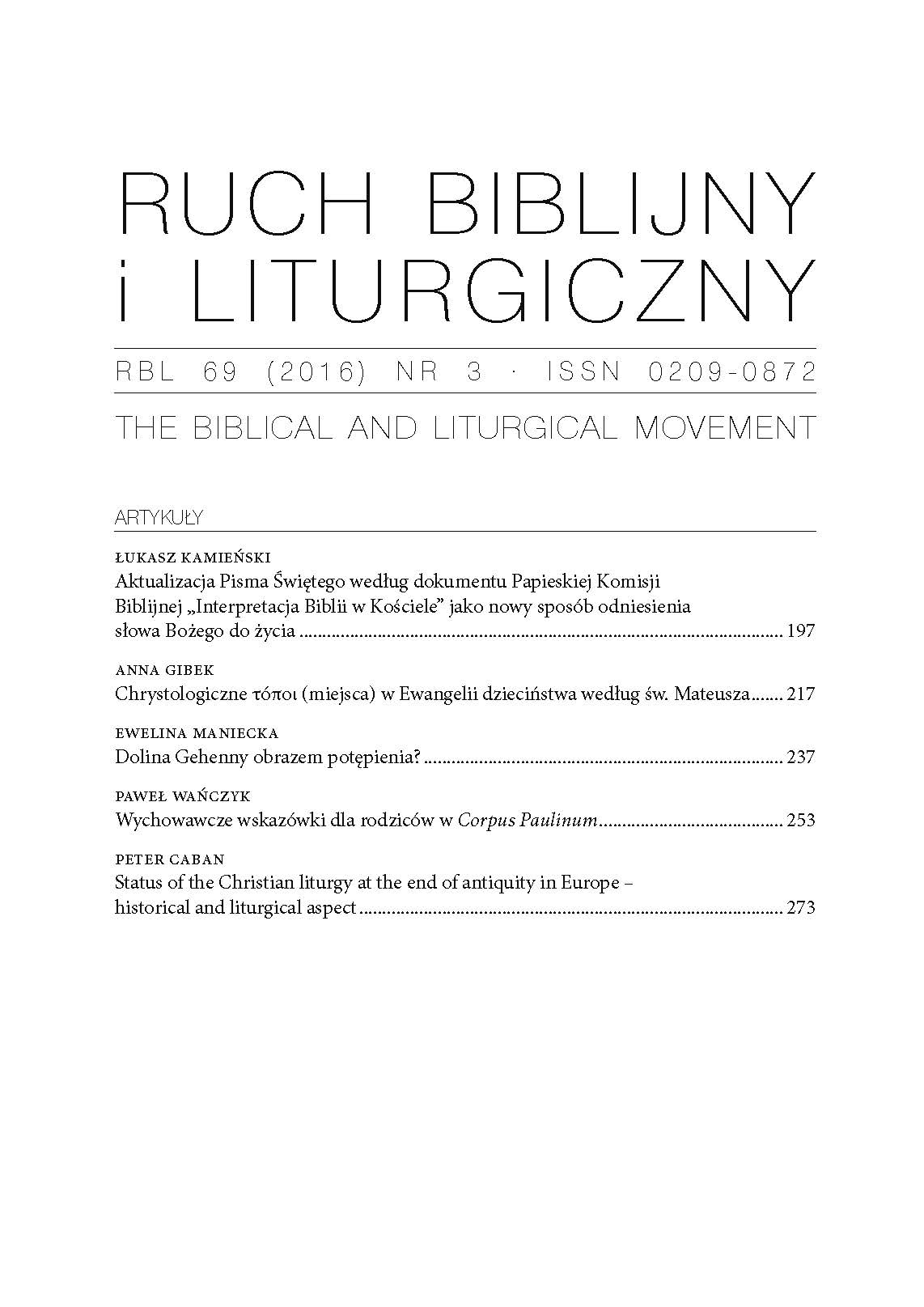
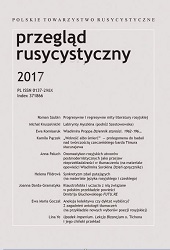
Keywords: postcolonial studies; Russian literature; seminar; conference
More...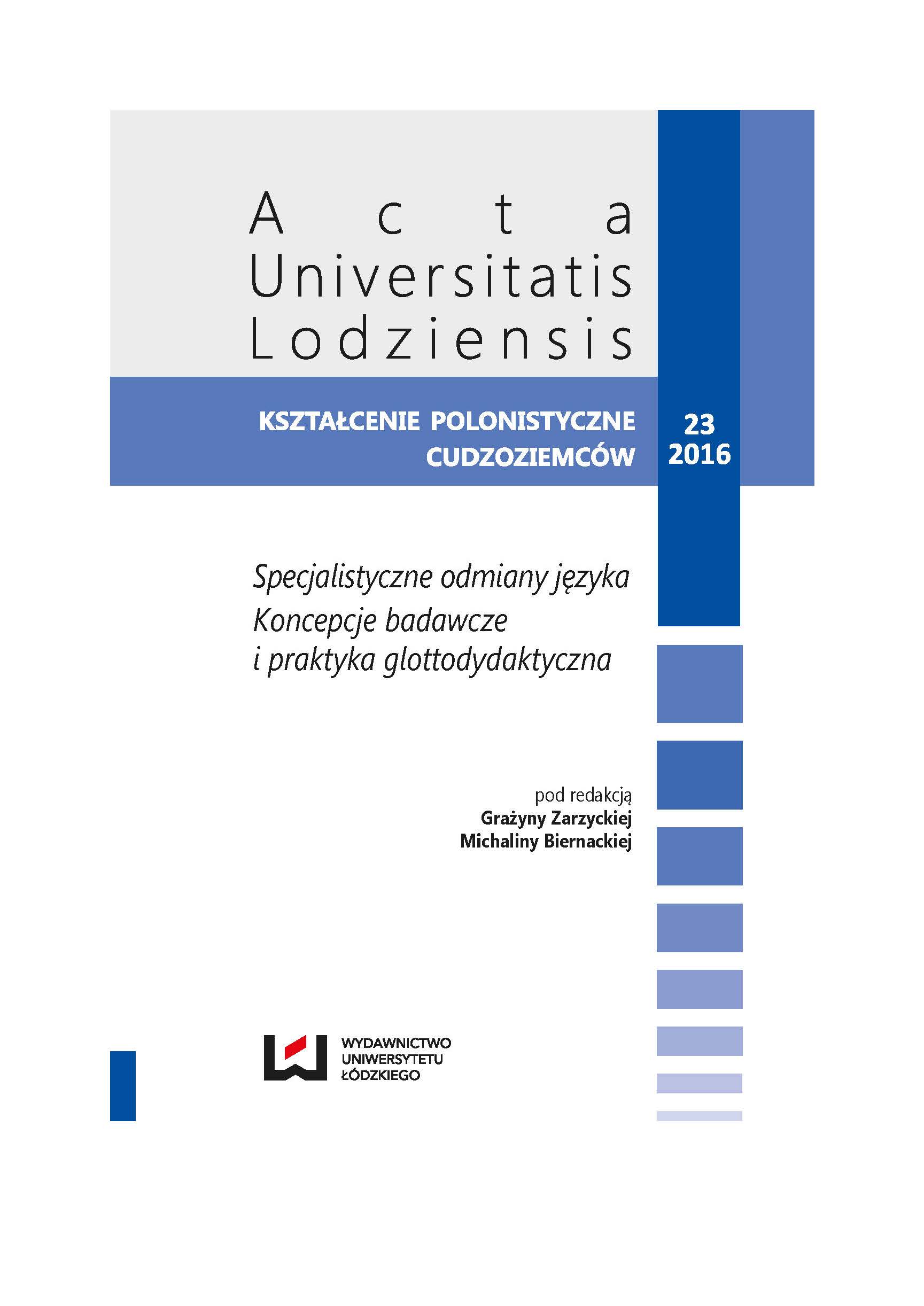
Keywords: Polish sounds;guide;learners;teachers;Polsih as a foreign language;głoski polskie;przewodnik;uczący się;nauczyciele;język polski jako obcy
More...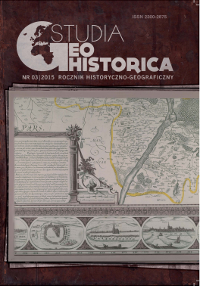
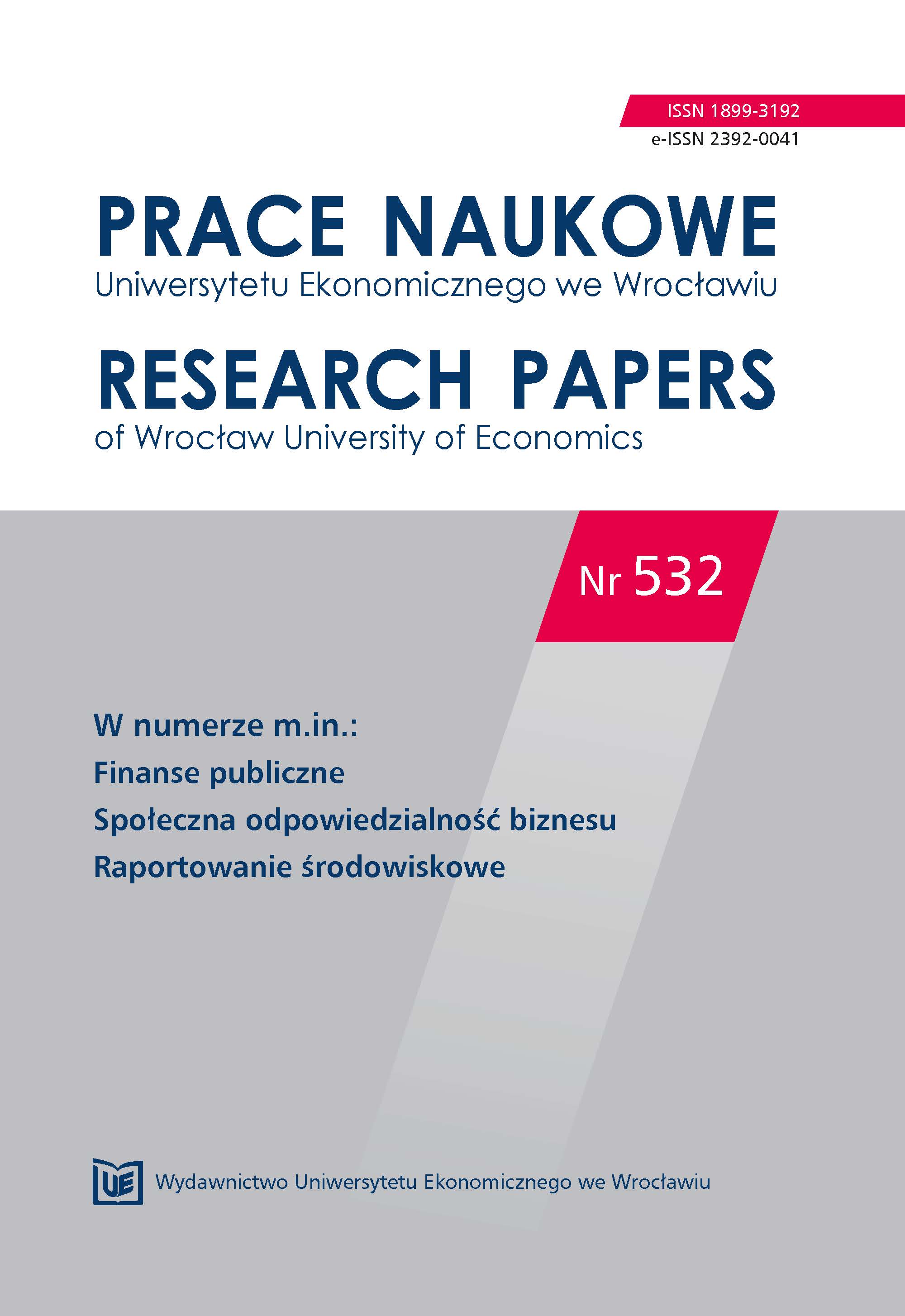
Keywords: uniwersytet; odpowiedzialność; przedsiębiorczość; wdrożenia; komercjalizacja;
We współczesnej gospodarce opartej na wiedzy pojawia się dylemat jaki „rodzaj” uniwersytetu wypełni najlepiej swoją rolę. Uniwersytet „klasyczny”, „przedsiębiorczy” czy może „społecznie odpowiedzialny”? Wszechobecne nawiązywanie do pojęcia innowacji skłania polityków gospodarczych do dokonywania ocen działalności komercjalizacyjnej czy też „wdrożeniowej” uniwersytetów. W odróżnieniu jednak od politechnik ocena działalności uniwersytetów w tym obszarze bywa często dyskusyjna. Celem badania była ocena systemu oceny działalności wdrożeniowej uniwersytetów w Polsce. Narzędziem wykorzystanym do realizacji celu była analiza danych udostępnionych przez system POL-on z obszaru „działalności wdrożeniowej” uczelni publicznych z okresu 2013–2016. W wyniku badania można dojść do konkluzji, iż wskaźniki i proces parametryzacji w okresie 2013–2016 mógł nie być do końca dopasowany do działalności każdego rodzaju uczelni wyższej, a już w szczególności do uniwersytetów.
More...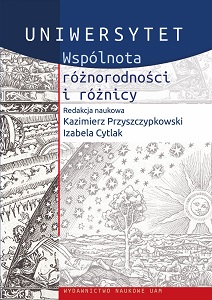
Keywords: architecture of academic knowledge; diversity; different; knowledge transfer; interdisciplinarity
This book uses the concept of the architecture of academic knowledge, pointing to the main overlapping areas of science. In the Lisbon Strategy, we can find attempts to define knowledge through the prism of economic and technological aspects of Europe's development. The goal that we would like to achieve, thanks to knowledge, is to create a competitive society (in relation to the dominant world economies). Doesn't such a concept carry a shadow of technocratism? Is there a place for humanistic reflection? Where are we ourselves? Our inner needs, beliefs and priorities. While building a society based on knowledge, it is worth taking the path of cognitive and scientific diversity that will allow us to maintain a balance in these times that are uncertain for us. At this point, it is worth pointing out the diversity which is the basic manifestation of the architecture of academic knowledge. It is its value and foundation. This differentiation also contains the message that knowing (a) non-scientific has a verbal form, it still lasts and has its infinity.Diversity and the resulting difference in defining specific problems in the architecture of academic knowledge should be viewed equally, as it is not a difference in value. The sum of diversity and difference is positive and creative. In this perspective of relationality, each element (construct) is perceived as "different - distinct". In this way, the domination of any of these elements (constructs) is eliminated. However, each of them is not denied the right to autonomy. This is the perspective of perceiving the relational (fusion) of "different - distinct". with "different - distinct". In the texts of outstanding scientists attached in this book.This book is a generational transmission of knowledge, a kind of transfer between knowledge and experience and what is just entering the world of science. It is a kind of encouragement to use the scientific achievements combining the interpenetrating disciplines of academic knowledge. In one place, texts of prominent figures from the world of science presenting various fields of science are gathered. We dedicate the book to scientists as well as students who want to learn about the interpenetrating areas of academic knowledge architecture.
More...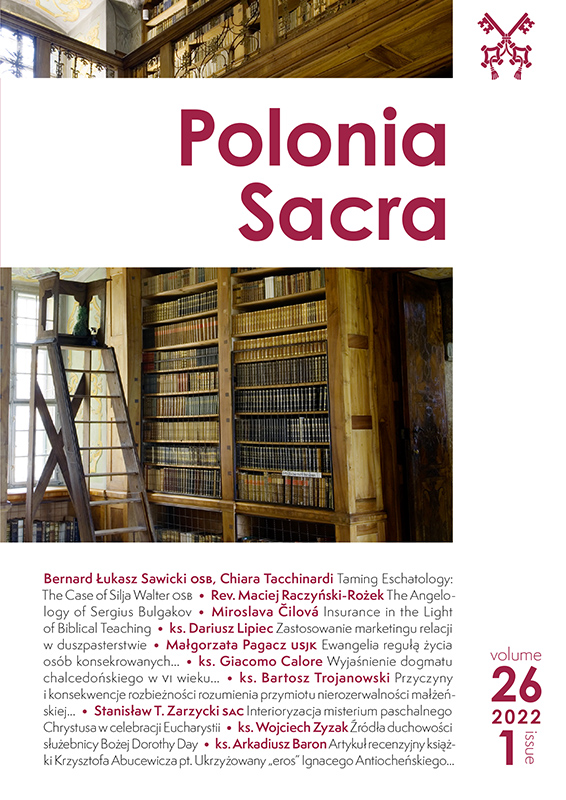
Keywords: Ignatius of Antioch; agape; eros
In 2021 was published a unique monograph on the interpretation of the evocation of Ignatius of Antioch, “My Eros”, presenting research from the beginning of Christianity (the letters come from the beginning of the 2nd century) to our times. It is a book by Krzysztof Abucewicz entitled The Crucified “Eros” of Ignatius of Antioch (Katowice 2021, 676pp). The book is unique due to the wide scope of research and the extremely high competency of its author. The extensive amount of the work put into the research is awe-inspiring. The aim of the article is to show the content and main qualities of the book and to critically analyze of the conclusions drawn by Krzysztof Abucewicz. This article tries to clarify answers to the question about the possibility of establishing unequivocal conclusions, which researchers of history, literature and theology come to, regarding the interpretation of the evocation of Ignatius of Antioch. In this sense, the article is polemical in nature, aimed at encouraging theologians to read the discussed monograph and use it in their own theological research.
More...